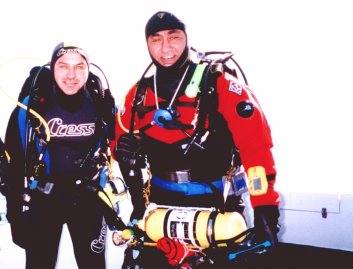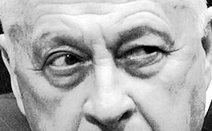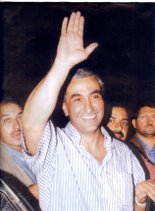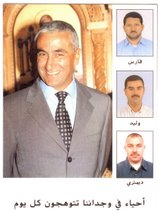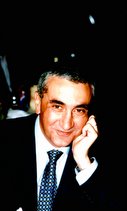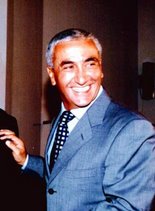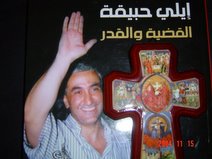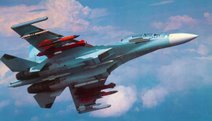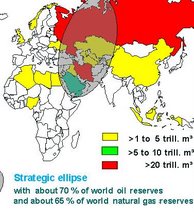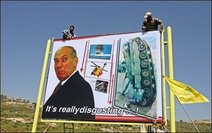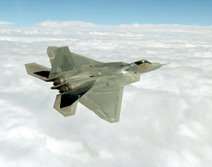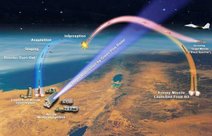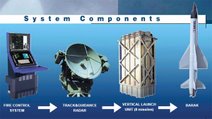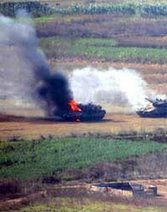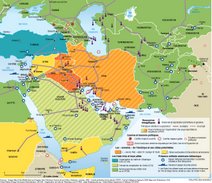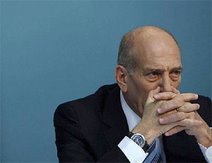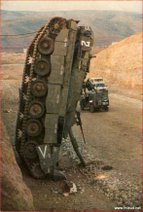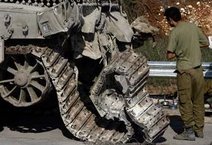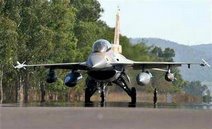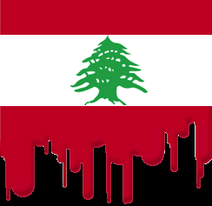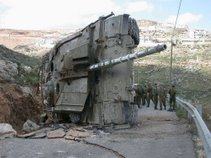
[ This tells the story of the Safari Club, the secret organization created by the CIA to circumvent the Congress of the United States. It could be accurately described as the "secret government" of the United States. This secret government is basically a privatized facsimile of the real government with its own financing and intelligence arms, but most of them are not American citizens. "Retired" American intelligence and military men and their Saudi and Pakistani counterparts have joined with this organization, where they have been implementing the covert American foreign policy for thirty years or more. When stories refer to shady mercenary types as "Blackwater," they are usually referring to the Safari Club mercenaries. Some people call them "al CIAda."]
The Safari Club and the ‘Islamic Bomb’
 Recorded August 28, 2005
Recorded August 28, 2005
REALAUDIO
Since 9/11, there has been a height ened level of dis cus sion on the pos si bil ity of nuclear ter ror ism, par tic u larly in light of the A.Q. Khan net work and the smug gling of nuclear tech nol ogy from Pak istan to a num ber of other coun tries. This broad cast sets forth informa tion that demon strates the com plic ity of the Safari Club in the devel op ment of the “Islamic Bomb.” An out sourc ing of U.S. intel li gence func tions to Saudi Ara bia and (to a lesser extent) Pak istan, the net work was the prin ci pal ele ment in the CIA’s sup port network for the Mus lim mujahideen that drove the Sovi ets out of Afghanistan. Of course, it was that con flict that spawned Osama bin Laden as a war rior. In this pro gram, the devel op ment of the Pak istani “Islamic Bomb” by the A.Q. Khan net work is seen as a quid pro quo for Pak istani and Saudi help in fight ing the Sovi ets. In addi tion to the fact that the Saudis were in effec tive to con trol of the A.Q. Khan network’s oper a tions, the show demon strates that CIA assets asso ci ated with that net work were allowed to oper ate in the United States until well after 9/11!
Pro gram High lights Include: The impor tant role of the BCCI in the financ ing of the A.Q. Khan network’s oper a tions (the BCCI milieu is deeply involved in the events in, and around, 9/11); U.S. pres sure on British inves ti ga tors to aban don their inves ti ga tion of the A.Q. Khan net work; the oper a tions of Nazir Ahmed Vaid, an appar ent CIA asset whose opera tions on behalf of the A.Q. Khan net work con tin ued in the United States until after 9/11; the George W. Bush administration’s relax ing of sanc tions imposed on Pak istan by the Clin ton admin is tra tion because of its efforts at promot ing the spread of nuclear tech nol ogy; the par tic i pa tion by the Theodor Shackley/Thomas Clines/Edwin Wil son network in the Afghan Mujahideen sup port effort.
1. The broad cast begins by pre sent ing back ground infor ma tion on the Safari Club. That infor ma tion is con tained in FTR#522. Under writ ten by Saudi Ara bia, the Safari Club entailed the out sourc ing of U.S. intel li gence oper a tions to the Saudis and other coun tries. It is in the con text of the Safari Club that the Saudi-funded Islamic Devel op ment Bank under took much of the financ ing of the A.Q. Khan net work and its devel op ment of the Islamic bomb.
“The same lead er ship that pro mul gated the Safari Club—the Saudi royals—also strongly funded and sup ported the Islamic Devel op ment Bank. Begun in 1973, the IDB now has 55 mem ber states, with Saudi Ara bia dom i nat ing, with 27.33 per cent of the bank’s fund ing. As a com par i son, Egypt con tributes 9.48% and Pak istan just 3.41% of the bank’s total cap i tal. It was through the bank’s sci en tific and eco nomic devel op ment efforts that huge amounts were fun neled into Pak istan, which ended up in the hands of A.Q. Khan and his now-infamous nuclear bomb-building syndicate.”
2. U.S. involve ment with the A.Q. Khan network’s devel op ment of the Islamic bomb was a quid pro quo for Pak istani coop er a tion with the covert war against the Sovi ets in Afghanistan—the same war that spawned Osama bin Laden.
“The effort that began prior to the Soviet inva sion of Afghanistan—and that Pres i dent Carter’s National Secu rity Adviser warned was a seri ous effort to build the first Islamic bomb—was delib er ately ignored by Carter in order to secure Saudi and Pak istani coop er a tion for the anti-Soviet effort in Afghanistan. Like almost every thing about the anti-Soviet effort, the Rea gan admin is tra tion expanded on it; and the CIA directly assisted the Pak istani nuclear effort by allow ing Pak istani nation als to pro cure hard ware for the pro gram in vio la tion of the Nuclear Non-Proliferation Treaty.”
(Idem.)
3. In RFA’s 4, 29, 30—avail able from Spitfire—we exam ined the pri va tized intel li gence net work devel oped to extend U.S. intel li gence oper a tions beyond the over sight of Con gress. Uti liz ing the tal ents of Edwin Wil son and Frank Ter pil, this net work was oper ated prin ci pally by Theodore Shack ley and Thomas Clines, two of the lead ing fig ures in CIA covert oper a tions through out much of the agency’s exis tence. This net work was deeply involved with the Afghan support effort. It should be noted that the elder George Bush was deeply involved with the Wilson-Shackley-Clines oper ations, as well as the Safari Club. As we saw in FTR#522, the Safari Club, in turn, sub sumed the oper a tions of the Wilson-Shackley-Clines net work to a con sid er able extent.
“ ‘There was noth ing more impor tant than prop ping up a free Afghanistan. One of the things I did was try to get the Afghan king, then liv ing in exile in Italy, to come back to Afghanistan so we could build a new gov ern ment,’ Tom Clines recalled. Although he was out of the CIA and offi cially retired, ‘I was try ing to do my part in keep ing Afghanistan in our col umn. . . .Shack ley was work ing with the Royal fam i lies in the Gulf . . . all were con tribut ing to the effort in the early 1980’s.’”
(Idem.)
4.
“Clines con ceded that the off-the-books intel li gence oper a tions had been melded into the Afghan war effort. ‘We worked for who was help ing the United States the most. The Saudis worked very closely with us.’ Clines recalled how Bernard Houghton, who had run Nugan Hand Bank in Saudi Ara bia until it ran out of money, played a key role, work ing with Prince Turki and the Saudi GID.”
(Idem.)
5. Out of the enor mous amounts of money the Saudis and the Safari Club chan neled to the Afghan mujahideen support effort, the Pak ista nis diverted a large sum in order to under write the cost of their nuclear network.
“What many peo ple do not know was that the Safari Club had made a deal with Pak istan at the expense of the Afghan peo ple. The Safari Club was run by the Saudis. It was a club to serve their pur poses through the CIA. Shack ley and Wil son were not mem bers; only nations could belong. Shack ley and Wil son were men who served the club in exchange for power, influence, and money. Pak istani Intel li gence would han dle all the money going to facil i tate the proxy war against the Sovi ets. That meant that hun dreds of mil lions of dol lars from the United States and Saudi Ara bia were being run through Pak istan with no account abil ity. ‘Unfor tunately,’ said Robert Crow ley, ‘the Pak ista nis knew exactly where their cut of the money was to go.’ Where the money went was into an Islamic nuclear-weapons pro gram sup ported by Saudi Ara bia and accepted by the United States.”
(Ibid.; p. 314.)
6. Despite U.S. claims to the con trary, this coun try did not inter dict the A.Q. Khan net work. On the con trary, the U.S. blocked British attempts at inter dict ing A.Q. Khan’s operations
“Dur ing the early 1990’s, British Cus toms began look ing closely at the United States—Pakistan nuclear net work. One of their top agents was an Arabic-speaking Mus lim who trav eled the world track ing down A.Q. Khan’s net work. The British soon learned that the United States had no inter est in shut ting down the net work, which had been oper at ing for years. The Mus lim customs agent, whose iden tity must be pro tected for his own safety, was actu ally con fronted by Khan in Dubai, where the agent had traced a num ber of Khan’s front com pa nies. The agent tes ti fied in a trial involv ing asso ciates of Khan’s that the father of the Pak istani bomb confronted the Mus lim cus toms agent and called him ‘a trai tor to Mus lim peo ple’ for uncov er ing the nuclear net work that was sup ply ing weapons equip ment to Libya, Iran, Malaysia, and North Korea.”
(Idem.)
7.
“A top French Intel li gence offi cial, who asked that his name be with held from pub li ca tion, described the U.S.—Pakistani cover-up of the Khan net work as hav ing ‘an impor tant precedent. Just as the U.S. allowed Israel to develop nuclear weapons, under pres sure from the Saudis, the U.S. allowed Pak istan to be Saudi Arabia’s proxy as the first Islamic nuclear state. The Saudis put up the cash and have clean hands as Pak istan builds the bomb for its supposed defense against India over Kash mir . . . but my coun try and the British received no coop er a tion start ing in the 1980’s when we dis cov ered traces of Khan’s net work. The U.S. did not want to dis cuss it.’”
(Ibid.; pp. 314–315.)
8. The U.S. actu ally shipped some of the hard ware to A.Q. Khan’s operation!
“A senior source in the British gov ern ment, who asks not to be named, con firms that Khan ran the net work and that parts for the nuclear-weapons pro gram came from the United States. Khan’s daugh ter, attend ing school in Eng land, was being tutored, and at the ends of faxes deal ing with logis tics for her edu ca tion, Khan would some times write, in his own hand, items he needed for the nuclear program.”
(Ibid.; p. 315.)
9. Next, the pro gram details some of the his tory and back ground of the Pak istani nuclear effort:
“Pakistan’s quest for nuclear weapons had begun some fif teen years ear lier. Shortly after taking office in 1972, Pak istani Prime Min is ter Zul fiker Ali Bhutto expressed his deter mi na tion to develop a nuclear capa bil ity. His pur pose was two fold: to off set the inher ent threat posed by Pakistan’s much larger neigh bor and avowed enemy, India; and to make his coun try a leader of the Islamic world. After India det o nated its first atomic weapon on the Pak istani bor der in 1974, Bhutto pushed his nuclear pro gram into high gear. To lead the effort, he tapped Abdul Qadeer Khan, an accom plished met al lur gist and busi ness man with a strong desire for wealth. To finance his ambi tious pro gram, Bhutto turned to his country’s oil-rich ally, Saudi Ara bia, and to Libya. China also pledged assis tance. By 1976, when George Bush served as CIA Direc tor, U.S. intel li gence esti mates reported, in a secret CIA report on Pak istan, that Pak istan was engaged in ‘a crash pro gram to develop nuclear weapons.’”
(Idem.)
10. As men tioned above, the U.S. “signed on” with the Pak istani nuke pro gram after the start of the Soviet inva sion of Afghanistan.
“In 1979, while await ing exe cu tion fol low ing his over throw, Bhutto wrote in his mem oirs that his goal as prime min is ter had been to put the ‘Islamic Civ i liza tion’ on an even foot ing with ‘Chris t ian, Jew ish and Hindu Civ i liza tions’ by cre at ing a ‘full nuclear capa bil ity’ for the Islamic world. The man who over threw Bhutto, Gen eral Muham mad Zia ul Haq, car ried on that effort. In April 1979, when Pres i dent Zia refused to halt work on the ‘Islamic Bomb,’ Pres i dent Jimmy Carter cut off Amer i can eco nomic and mil i tary aid to Pak istan. Just eight months later, however, fol low ing the Soviet Union’s inva sion of Afghanistan, Carter struck the ulti mate Faus t ian bar gain in order to win Zia’s approval for using Pak istan as a base of oper a tions for the mujahideen. Zia’s for tunes fur ther improved fol low ing the 1980 elec tion of Ronald Rea gan and George H.W. Bush.”
(Ibid.; pp. 315–316.)
11.
“With the covert U.S. war in Afghanistan inten si fy ing, the Pak istani dic ta tor gained sig nif i cant advan tage and used it. In addi tion to win ning large eco nomic and military-aid pack ages for his coun try, he extracted a promise from the Reagan-Bush admin is tra tion that there would be no U.S. inter fer ence in Pakistan’s ‘inter nal affairs.’ That meant no com plaints about Zia’s dic ta to r ial rule and no obstruc tion of his efforts to build an Islamic Bomb. To keep up appear ances, Zia pub licly main tained that he was not devel op ing nuclear weapons. How ever, in 1983, a secret State Depart ment brief ing memo revealed that there was ‘unam bigu ous evi dence’ that Pakistan was ‘actively pur su ing a nuclear weapons devel op ment pro gram’ and that China was pro vid ing tech no log i cal assis tance. At the time, U.S. law pro hib ited pro vid ing assis tance to any coun try that was import ing cer tain nuclear-weapons tech nol ogy. The Reagan-Bush admin is tration sim ply ignored the leg is la tion, argu ing that cut ting off aid to Pak istan would harm U.S. national interests.”
(Ibid.; p. 316.)
12. Texas Con gress man Char lie Wil son was a major backer of the Afghan mujahideen and actively encour aged the Pak ista nis to con tinue to develop their nuclear program.
“Through out the 1980’s, Con gress man Char lie Wil son, the for mer Ed Wil son asso ciate, act ing in con cert with the CIA, repeat edly blocked Con gres sional efforts to halt Amer i can fund ing of Pak istan in order to pro tect a key ally in the covert Afghan war. Wil son went so far as to tell Zia, ‘Mr. Pres i dent, as far as I’m con cerned you can make all the bombs you want.’ Zia pri vately assured the con gress man that Pakistan’s nuclear pro gram was peace ful and that it would never build a deliv ery sys tem. ‘The truth was the Amer i cans had lit tle choice,’ [Dawud] Salahud din said. ‘Zia was wor shipped by the mujahideen. He was the only for eign leader who attracted uni ver sal admi ra tion amongst them, even though they were well aware that his ISI [Inter Ser vice Intel li gence] guys were tak ing what the Afghans fig ured was a 60-percent cut on all that was being sent to them. None of that took any glow off Zia’s halo. He was the only one to open his coun try to the Afghan resis tance, allowed train ing camps, and there were always more Afghan refugees in Pak istan than in Iran. The Ira ni ans did noth ing of the sort or the scale in the mil i tary sphere. . . .The guy was almost saint-like for the resistance.’”
(Ibid.; pp. 316–317.)
13. Amer i can com plic ity with the pro gram was assisted by Pak istani pres i dent Zia’s equiv o ca tion about the goals of their nuclear pro gram, which he main tained were peaceful.
“Zia con tin ued to deceive the United States about his nuclear-weapons ambi tions. In the mid-1980’s, he flatly told the U.S. Ambas sador to the United Nations, Ver non Wal ters, that Pakistan was not build ing a bomb. When senior State Depart ment offi cials later con fronted him about the mis rep re sen ta tion, Zia told them, ‘It is per mis si ble to lie for Islam.’ He even tu ally gave up the pre tense, telling Time mag a zine in 1987 that ‘Pak istan has the capa bil ity of building the bomb.’”
(Ibid.; p. 317.)
14.
“By 1985, the Saudi royal fam ily had suc ceeded in draw ing the United States into an Islamic morass. Over the years, the Wah habi sect, a rad i cal form of anti-Western Islam, had increasingly caused the high-living royal fam ily polit i cal prob lems at home. To deal with this, the royal fam ily gave the Wah habi lead ers free rein and paid lip ser vice to their dia tribes against the West and Israel. But after the fall of the Pea cock Throne in Iran, reli gious divi sions sur faced within the royal fam ily, con tribut ing to a schiz o phre nia in Saudi Arabia’s for eign pol icy: with one hand the Saudis sup ported the sec u lar Sad dam Hus sein against the Islamic regime in Iran, and with the other they dis patched Osama bin Laden and oth ers as mem bers of Saudi Intel ligence to work with the most rad i cal Islamic ele ments fight ing to secure con trol of Afghanistan. The anti-Communist Reagan-Bush pol icy mak ers focused only on the goal of weak en ing the Soviet Union, ignor ing the threat of rad i cal Islam.”
(Idem.)
15. The Pak istani nuclear effort was sub si dized through the BCCI—a vehi cle for much of the covert oper at ing of the 1980s. Cur rent FBI direc tor Robert Mueller led the offi cial “inves ti ga tion” into BCCI, and cov ered up much of what was there to be discovered.
“The efforts by the Saudis, Rea gan, Casey, and Bush to desta bi lize the Soviet Union through the war in Afghanistan car ried a huge price in terms of both money and the num ber of Afghan lives lost. Hun dreds of mil lions of dol lars poured into Pak istani Intel li gence from the United States, with almost no con trol on how the funds were spent. The same BCCI bank accounts being used to fund the Afghan resis tance were also used to fund the Pak istani nuclear-bomb pro gram, accord ing to a Sen ate report on BCCI.”
(Idem.)
16.
“The Reagan-Bush pol icy vio lated both Amer i can law and inter na tional non pro lif er a tion treaties. But this type of vio la tion was not unprece dented: the United States had allowed covert aid to Israel to help with their nuclear-weapons pro gram in the late 1950’s and early 1960’s. In 1964, Lyn don John son had given James Angle ton per mis sion to assist Israel in further devel op ing its nuclear-weapons pro gram. Now the Rea gan admin is tra tion was lev el ing the play ing field. The Saudis claimed that Israel had directly aided India in devel op ing its program and had thus cre ated a dan ger ous imbal ance in the region. Allow ing Pak istan to develop a weapon, but not to deploy it, seemed like a work able com pro mise and, the Saudis argued, the only solu tion. The 1979 memo from Zbig niew Brzezin ski to Pres i dent Carter—had warned that the price of lur ing the Sovi ets might include aban don ing efforts to stop nuclear pro lif er ation in Pak istan. Just six years later, the Reagan-Bush team played a huge role in mak ing the first Islamic nuclear weapon possible.”
(Ibid.; pp. 317–318.)
17. CIA Soviet ana lyst Melvin Good man was among those few Amer i can intel li gence ana lysts who noted that we were back ing the wrong Islamic groups in Afghanistan. Arms dealer Sarkis Soghan lian (deeply involved with the Bush-Reagan-Safari Club clan des tine oper a tions of the 1980’s) main tains that the A.Q. Khan net work was at all times directed by the Saudis.
“By the mid-1980’s, so much money was flow ing through the Pak istani ISI that the CIA did not have a han dle on where it ws going, accord ing to Melvin Good man, a for mer CIA ana lyst on the Soviet Union. ‘They were fund ing the wrong Islamic groups . . . ‚’ said Good man, ‘and had lit tle idea where the money was going or how it was being spent.’ Sarkis Soghana lian, who prof ited from pro vid ing arms for the secret-aid pro gram, put it bluntly: ‘As in Iraq, the U.S. did not want to get its hands dirty. So the Saudis’ money and the U.S. money was han dled by ISI. I can tell you that more than three quar ters of the money was skimmed off the top. What went to buy weapons for the Afghan fight ers was peanuts.’ Accord ing to Soghana lian, the funds were first laun dered through var i ous BCCI accounts before being dis bursed to ISI and into an elab o rate net work run by A.Q. Khan. ‘Khan’s net work was con trolled by the Saudis, not Khan and not Pak istan,’ Soghana lian said. [Empha sis added.] ‘The Saudis were in on every major deal includ ing Iran, Libya, North Korea, and Malaysia.’”
(Ibid.; p. 318.)
18.
“After two decades of silence on Pakistan’s nuclear-proliferation net work, the CIA went pub lic in 2004, tak ing credit for uncov er ing the net work. After A.Q. Khan’s bizarre con fes sion, apology, and sub se quent par don (‘There was never any kind of autho riza tion for these activ i ties by the gov ern ment,’ Khan said on Pak istani tele vi sion. ‘I take full respon si bil ity for my actions and seek your par don’), the CIA claimed it had suc cess fully exposed Pakistan’s nuclear efforts. In fact, Khan’s net work was only the tip of a huge nuclear-technology iceberg.”
(Ibid.; pp. 318–319.)
19. Recent claims by the CIA that they had “uncov ered” and “inter dicted” the A.Q. Khan net work are as disin gen u ous as Khan’s pre pos ter ous pub lic procla ma tion that he alone—and not the Pak istani government—was respon si ble for the oper a tion. That’s right, A.Q. Khan was a “lone nut!”
“The truth of how much the CIA and the pri vate intel li gence net work knew in the 1980’s and what their actual role might have been is sug gested by a pair of crim i nal cases—one in Lon don and one in Hous ton. In each case, the defen dant received very kind treat ment from author ities, who allowed the nuclear-proliferation net work to con tinue operating.”
(Ibid.; p. 319.)
20. Much of the rest of the pro gram is devoted to a chill ing dis cus sion of the myr iad oper a tions of Nazir Ahmed Vaid, one of the A.Q. Khan network’s prin ci pal oper a tives. In addi tion to the fact that Vaid’s oper a tions appear to have been con ducted while he func tioned as a CIA asset, it is vitally impor tant to note that his U.S.-based activ i ties were allowed to con tinue after 9/11!! The George W. Bush admin is tra tion turned a blind eye to Pakistan’s nuclear efforts as yet another quid pro quo—this one in exchange for Pakistan’s “coop er a tion” in “the war on ter ror.” As was the case with much of the rest of the Khan network’s efforts, Vaid’s activ i ties were also con ducted through the BCCI, to a cer tain extent.
“In June 1984, the U.S. fed eral agents arrested Nazir Ahmed Vaid, a thirty-three-year-old Pakistani, as he attempted to smug gle out of Hous ton fifty high-speed elec tronic switches of a kind used to trig ger nuclear bombs. At the time of the arrest, U.S. Cus toms agents seized several let ters directly link ing Vaid to S.A. Butt, the direc tor of Pakistan’s Atomic Energy Com mission. Butt was already well known to U.S. and Euro pean arms con trol offi cials as ‘they key oper a tive in Pakistan’s suc cess ful attempts in Europe in the 1970’s to obtain the tech nol ogy and resources for the enrich ment of ura nium and the repro cess ing of plu to nium.’ Vaid reportedly offered to pay for the switches in gold, later deter mined to have been sup plied by BCCI. U.S. fed eral offi cials, how ever, never informed the pros e cu tors that the let ters con nected Vaid to the Pak istani bomb pro gram. Instead, a very spe cial deal was worked out.”
(Idem.)
21. Note the evi dence of U.S. com plic ity in Vaid’s activities!!
“Vaid ulti mately pleaded guilty to one count of ille gally attempt ing to export the switches, known as kry trons, with out a license. U.S. Dis trict Judge James DeAnda sen tenced Vaid to five years’ pro ba tion, the min i mum pos si ble sen tence. At Vaid’s sen tenc ing, both Judge DeAnda and the pros e cu tor agreed that Vaid was not a for eign agent. DeAnda described him sim ply as a busi ness man ‘try ing to expe dite what he thought was a busi ness deal.’ Just three weeks later, Vaid was deported. Accord ing to reporter Sey mour Hersh, Arnold Raphel, who served as the U.S. Ambas sador to Pak istan, later revealed that there had been a ‘fix in’ on the Vaid case and that the CIA had arranged for the mat ter to be han dled quietly.”
(Ibid.; pp. 319–320.)
22.
“Because of his con vic tion and depor ta tion, Vaid was pro hib ited from return ing to the United States. His name appears on a U.S. Bureau of Immi gra tion and Cus toms Enforce ment (ICE) data base of banned indi vid u als. Nev er the less, accord ing to an ICE spokesman, Vaid has entered the coun try more than a half dozen times dur ing the past sev eral years. By sim ply drop ping his last name and becom ing ‘Nazir Ahmed,’ Vaid ‘fraud u lently’ obtained mul ti ple visas from the U.S. State Depart ment, accord ing to ICE.”
(Ibid.; p. 320.)
23.
“Dur ing his recent visits—some after the Sep tem ber 11, 2001, attacks—Vaid has estab lished, in Texas, a string of com pa nies with for eign affil i a tions. Three in par tic u lar stand out. On July 22, 2002, Vaid, using the name Nazir Ahmed, and his brother, Mohammed Iqbal Vaid, incor porated Najood Trad ing, Inc., and Idafa Invest ments, Inc. The sole share holder in Majood is a com pany of the same name based in Dubai, United Arab Emi rates. The Emi rates are known to have been used as a trans ship ment point by the Khan net work. The Dubai com pany iden ti fies itself as being engaged in, among other things, ‘Build ing Ser vice Mate ri als Trad ing, Con struction Mate ri als Trad ing, Roof ing Mate ri als & Acces sories.’ The direc tors of the Texas com pany are ‘Nazir Ahmed’ and Ahmed Ali, whose address is the same as that of the Dubai par ent company.”
(Idem.)
24.
“The sole share holder in Idafa Invest ments is an Islamic invest ment firm of the same name based in Mum bai, India. The Web site for the par ent com pany iden ti fies it as a broad-based invest ment advi sory and man age ment firm that oper ates on Quranic prin ci ples. The founder of the Indian com pany is listed as Ashraf Abdul-Haq Moham edy. One of the direc tors of the Texas com pany is Ashraf Abdul hak [sic] Moham edy. The oth ers are Mohamed Ashraf Abdul hak Moham edy, Moham mad [sic] Vaid, and ‘Nazir Ahmed.’ The Indian company’s Web site pro vides a link to Islamic Quest, an orga ni za tion ‘estab lished to present the cor rect posi tion of Islam to Non-Muslims.’ The con tact per son for Islamic Quest is listed as Ashraf Abdul haq Mohemedy.”
(Idem.)
25.
“Mohammed Vaid signed the incor po ra tion papers for both Majood and Idafa on the same day, July 19, 2002, and before the same notary pub lic. On that same day, and before the same notary. ‘Nazir Ahmed’ signed the incor po ra tion papers for yet another com pany, MEC Enterprises (USA), Inc. (The sig na ture above the printed words ‘Nazir Ahmed’ appears to read simply ‘Vaid.’) The sole share holder in the com pany is MEC Engi neer ing is a met als machin ing and man u fac tur ing com pany. Its many ‘func tions,’ as listed on its Web site, include: ‘Tanks Ves sels & Shells,’ ‘Phar ma ceu ti cal Machiner ies & Equip ment,’ ‘Waste Water Treat ment,’ and ‘Engi neering Pipeline Con struc tion.’ The own ers of MEC Engi neer ing are Abdul Qavi Qureshi and Abdul Majid Qureshi. The direc tors of the Texas sub sidiary, MEC Enter prises, are ‘Nazir Ahmed’ and Mohammed Aslam Qureshi of Karachi.”
(Ibid.; p. 321.)
26.
“As recently revealed, Khan’s mid dle man, B.S.A. Tahir, helped estab lish a sub sidiary of a Malaysian metal machin ing com pany and used it to man u fac ture parts for high-speed centrifuges for enrich ing ura nium. The parts were trans shipped through Tahir’s Dubai-based front com pa nies to end users such as Libya.”
(Idem.)
27.
“The first known U.S. com pany the Vaids set up fol low ing Nazir’s depor ta tion was Fina tra Commu ni ca tions, Inc. The com pany was incor po rated by a third party, Ameen M. Ali of Hous ton, in August 1996. The share hold ers were Mohammed Vaid, 20 per cent, and ‘Nazir Ahmed,’ 80 percent. Both listed res i den tial addresses in Hous ton. In 1999, the Vaids changed the name of the com pany to Fina tra Group of Companies.”
(Idem.)
28.
“Nazir Vaid also oper ates a branch of Fina tra in Pak istan. A 1997 arti cle in Pak istan & Gulf Econ o mist refers to ‘Nazir Ahmed Vaid’ as the chief exec u tive of Finatra’s Cyber cafe in Karachi, report edly the first such estab lish ment in Pak istan. The par ent of the Cyber-café is the Fina tra Group of Com pa nies, also based in Karachi. Fina tra Group con trols sev eral busi nesses, including a Web-hosting ser vice, and energy-generation com pany, phone and cell-phone men tal agen cies, and a pre paid call ing card dealer called Fina tra Com mu ni ca tions Pri vate Lim ited. In 1998, Fina tra Com mu ni ca tions signed a con tract with Pakistan’s offi cial phone com pany, Pakistan Telecom mu ni ca tions Com pany Ltd., to pro vide pre paid phone-card ser vice in Pak istan. The ser vice also allows direct inter na tional dial ing. All of these busi nesses could be use ful to an intel li gence ser vice or a ter ror ist orga ni za tion. In 2004, U.S. Cus toms was plan ning to detain Vaid on his next trip to the United States after being warned by a reporter that Vaid was trav el ing freely between the U.S. and Pak istan. In the fall of 2004, a U.S. Cus toms agent inex plic a bly told Vaid’s son that there was a deten tion order out on his father. That inci dent raises major ques tions about Vaid’s rela tion ship with the United States government—and about secu rity in the Cus toms Service.”
(Ibid.; pp. 321–322.)
29. Again, note that Vaid was able to func tion in the U.S. after 9/11!
“Accord ing to an ICE spokesman, Vaid last left the United States on Novem ber 1, 2002. More than one CIA source said that Nazir Vaid is a CIA ‘asset.’ In a tele phone inter view, Vaid flatly denied work ing for U.S. or Pak istani Intel li gence. He also insists he is not engaged in the trade or ship ment of nuclear technology.”
(Ibid.; p. 322.)
30. The George W. Bush admin is tra tion was “shocked, shocked!” to learn of Pakistan’s Islamic bomb pro gram. Note that the Clin ton admin is tra tion had imposed sanc tions on Pak istan because of its nuclear activ i ties. The Bush admin istra tion lifted those sanc tions two weeks after 9/11!
“The George W. Bush admin is tra tion expresses shock at the fact that Pakistan’s declared Islamic Bomb pro gram became just that—a pan-Islamic nuclear-weapons super mar ket. This is the same Bush admin is tra tion that, in an eerily famil iar move—just two weeks after the ter rorist attacks on Sep tem ber 11, 2001—lifted the sanc tions that had been imposed by the Clin ton admin is tra tion on Pak istan because of its nuclear-weapons activ i ties. The Bush change was to win Islamabad’s assis tance in the new war in Afghanistan—the ‘war on ter ror ism.’ This is also the same admin is tra tion that—publicly, at least—accepts A.Q. Khan’s absurd con fes sion that he is respon si ble personally—and not as an agent of the Pak istani government—for dis sem inat ing nuclear weapons know-how to North Korea, Iran, and Libya.”
(Idem.)
31.
“The fact that the United States had pro tected the Islamic Bomb pro gram also emerged in the Edwin Wil son case. Dur ing the time Wil son was fugi tive, the for mer CIA front man sent the Rea gan White House and the CIA detailed infor ma tion about the Libyan nuclear pro gram. The mem o ran dum went from Wil son in Libya, through his lawyers, to Ted Shack ley and the National Secu rity Adviser. Wil son would later say he was never asked or ques tioned about what he had learned about the Libyan nuclear program. . . .”
(Ibid.; pp. 322–323.)
